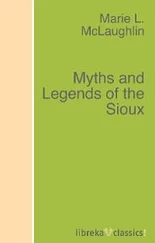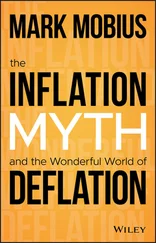Donald Alexander Mackenzie - Indian Myth and Legend
Здесь есть возможность читать онлайн «Donald Alexander Mackenzie - Indian Myth and Legend» — ознакомительный отрывок электронной книги совершенно бесплатно, а после прочтения отрывка купить полную версию. В некоторых случаях можно слушать аудио, скачать через торрент в формате fb2 и присутствует краткое содержание. Жанр: foreign_prose, foreign_religion, Философия, Мифы. Легенды. Эпос, foreign_psychology, foreign_antique, на английском языке. Описание произведения, (предисловие) а так же отзывы посетителей доступны на портале библиотеки ЛибКат.
- Название:Indian Myth and Legend
- Автор:
- Жанр:
- Год:неизвестен
- ISBN:нет данных
- Рейтинг книги:4 / 5. Голосов: 1
-
Избранное:Добавить в избранное
- Отзывы:
-
Ваша оценка:
- 80
- 1
- 2
- 3
- 4
- 5
Indian Myth and Legend: краткое содержание, описание и аннотация
Предлагаем к чтению аннотацию, описание, краткое содержание или предисловие (зависит от того, что написал сам автор книги «Indian Myth and Legend»). Если вы не нашли необходимую информацию о книге — напишите в комментариях, мы постараемся отыскать её.
Indian Myth and Legend — читать онлайн ознакомительный отрывок
Ниже представлен текст книги, разбитый по страницам. Система сохранения места последней прочитанной страницы, позволяет с удобством читать онлайн бесплатно книгу «Indian Myth and Legend», без необходимости каждый раз заново искать на чём Вы остановились. Поставьте закладку, и сможете в любой момент перейти на страницу, на которой закончили чтение.
Интервал:
Закладка:
It chanced that Pramadarva was playing with her companions a few days before the morning fixed for the nuptials. As her time had come, she trod upon a serpent, and the death-compelling reptile bit her, whereupon she fell down in a swoon and expired. She became more beautiful in death than she had been in life.
Brahmans assembled round the body of Pramadarva and sorrowed greatly. Ruru stole away alone and went to a solitary place in the forest where he wept aloud. “Alas!” he cried, “the fair one, whom I love more dearly than ever, lieth dead upon the bare ground. If I have performed penances and attained to great ascetic merit, let the power which I have achieved restore my beloved to life again.”
Suddenly there appeared before Ruru an emissary from the Celestial regions, who spake and said: “Thy prayer is of no avail, O Ruru. That one whose days have been numbered can never get back her own life again. Thou shouldst not therefore abandon thine heart to grief. But the gods have decreed a means whereby thou canst receive back thy beloved.”
Said Ruru: “Tell me how I can comply with the will of the Celestials, O messenger, so that I may be delivered from my grief.”
The messenger said: “If thou wilt resign half of thine own life to this maiden, Pramadvara, she will rise up again.”
Said Ruru: “I will resign half of my own life so that my beloved may be restored unto me.”
Then the king of the Gandharvas and the Celestial emissary stood before Dharma-rajah (Yama) and said: “If it be thy will, O Mighty One, let Pramadarva rise up endowed with a part of Ruru's life.”
Said the Judge of the Dead: “So be it.”
When Dharma-rajah had spoken thus, the serpent-bitten maiden rose from the ground, and Ruru, whose life was curtailed for her sake, obtained the sweetest wife upon earth. The happy pair spent their days deeply devoted to each other, awaiting the call of Yama at the appointed time. 107
There was once a fair princess in the country of Madra, and her name was Savitri. Be it told how she obtained the exalted merit of chaste women by winning a great boon from Yama.
Savitri was the gift of the goddess Gayatri, 108wife of Brahma, the self-created, who had heard the prayers and received the offerings of Aswapati, the childless king of Madra, when he practised austere penances so that he might have issue. The maiden grew to be beautiful and shapely like to a Celestial; her eyes had burning splendour, and were fair as lotus leaves; she resembled a golden image; she had exceeding sweetness and grace.
It came to pass that Savitri looked with eyes of love upon a youth named Satyavan “the Truthful”. Although Satyavan dwelt in a hermitage, he was of royal birth. His father was a virtuous king, named Dyumatsena, who became blind, and was then deprived of his kingdom by an old enemy dwelling nigh to him. The dethroned monarch retired to the forest with his faithful wife and his only son, who in time grew up to be a comely youth.
When Savitri confessed her love to her sire, the great sage Narada, who sat beside him, spoke and said: “Alas! the princess hath done wrong in choosing for her husband this royal youth Satyavan. He is comely and courageous, he is truthful and magnanimous and forgiving, he is modest and patient and without malice; honour is seated upon his forehead; he is possessed of every virtue. But he hath one defect, and no other. He is endued with short life; within a year from this day he must die, for so hath it been decreed; within a year Yama, god of the dead, will come for him.”
Said the king unto his daughter: “O Savitri, thou hast heard the words of Narada. Go forth, therefore, and choose for thyself another lord, for the days of Satyavan are numbered.”
The beautiful maiden made answer unto her father the king, saying: “The die is cast; it can fall but once; once only can a daughter be given away by her sire; once only can a woman say, ‘ I am thine ’. I have chosen my lord; once have I chosen, nor can I make choice a second time. Let his life be brief or be long, I must now wed Satyavan.”
Said Narada: “O king, the heart of thy daughter will not waver; she will not be turned aside from the path she hath selected. I therefore approve of the bestowal of Savitri upon Satyavan.”
The king said: “As thou dost advise, so must I do ever, O Narada, because that thou art my preceptor. Thee I cannot disobey.”
Then said Narada: “Peace be with Savitri! I must now depart. May blessings attend upon all of you!”
Thereafter Aswapati, the royal sire of Savitri, went to visit Dyumatsena, the blind sire of Satyavan, in the forest, and his daughter went with him.
Said Dyumatsena: “Why hast thou come hither?”
Aswapati said: “O royal sage, this is my beautiful daughter Savitri. Take thou her for thy daughter-in-law.”
Said Dyumatsena: “I have lost my kingdom, and with my wife and my son dwell here in the woods. We live as ascetics and perform great penances. How will thy daughter endure the hardships of a forest life?”
Aswapati said: “My daughter knoweth well that joy and sorrow come and go and that nowhere is bliss assured. Accept her therefore from me.”
Then Dyumatsena consented that his son should wed Savitri, whereat Satyavan was made glad because he was given a wife who had every accomplishment. Savitri rejoiced also because she obtained a husband after her own heart, and she put off her royal garments and ornaments and clad herself in bark and red cloth.
So Savitri became a hermit woman. She honoured Satyavan's father and mother, and she gave great joy to her husband with her sweet speeches, her skill at work, her subdued and even temper, and especially her love. She lived the life of the ascetics and practised every austerity. But she never forgot the dread prophecy of Narada the sage; his sorrowful words were always present in her secret heart, and she counted the days as they went past.
At length the time drew nigh when Satyavan must cast off his mortal body. When he had but four days to live, Savitri took the Tritatra vow of three nights of sleepless penance and fast.
Said the blind Dyumatsena: “My heart is grieved for thee, O my daughter, because the vow is exceedingly hard.”
Savitri said: “Be not sorrowful, saintly father, I must observe my vow without fail.”
Said Dyumatsena: “It is not meet that one like me should say, ‘Break thy vow,’ rather should I counsel, ‘Observe thy vow.’”
Then Savitri began to fast, and she grew pale and was much wasted by reason of her rigid penance. Three days passed away, and then, believing that her husband would die on the morrow, Savitri spent a night of bitter anguish through all the dark and lonely hours.
The sun rose at length on the fateful morning, and she said to herself, “ To-day is the day .” Her face was bloodless but brave; she prayed in silence and with fervour and offered oblations at the morning fire; then she stood before her father-in-law and her mother-in-law in reverent silence with joined hands, concentrating her senses. All the hermits of the forest blessed her and said: “Mayest thou never suffer widowhood.”
Said Savitri in her secret heart: “So be it.”
Dyumatsena spoke to her then, saying: “Now that thy vow hath been completed thou mayest eat the morning meal.”
Said Savitri: “I will eat when the sun goes down.”
Hearing her words Satyavan rose, and taking his axe upon his shoulder, turned towards the distant jungle to procure fruits and herbs for his wife, whom he loved. He was strong and self-possessed and of noble seeming.
Savitri spoke to him sweetly and said: “Thou must not go forth alone, my husband. It is my heart's desire to go with thee. I cannot endure to-day to be parted from thee.”
Читать дальшеИнтервал:
Закладка:
Похожие книги на «Indian Myth and Legend»
Представляем Вашему вниманию похожие книги на «Indian Myth and Legend» списком для выбора. Мы отобрали схожую по названию и смыслу литературу в надежде предоставить читателям больше вариантов отыскать новые, интересные, ещё непрочитанные произведения.
Обсуждение, отзывы о книге «Indian Myth and Legend» и просто собственные мнения читателей. Оставьте ваши комментарии, напишите, что Вы думаете о произведении, его смысле или главных героях. Укажите что конкретно понравилось, а что нет, и почему Вы так считаете.












